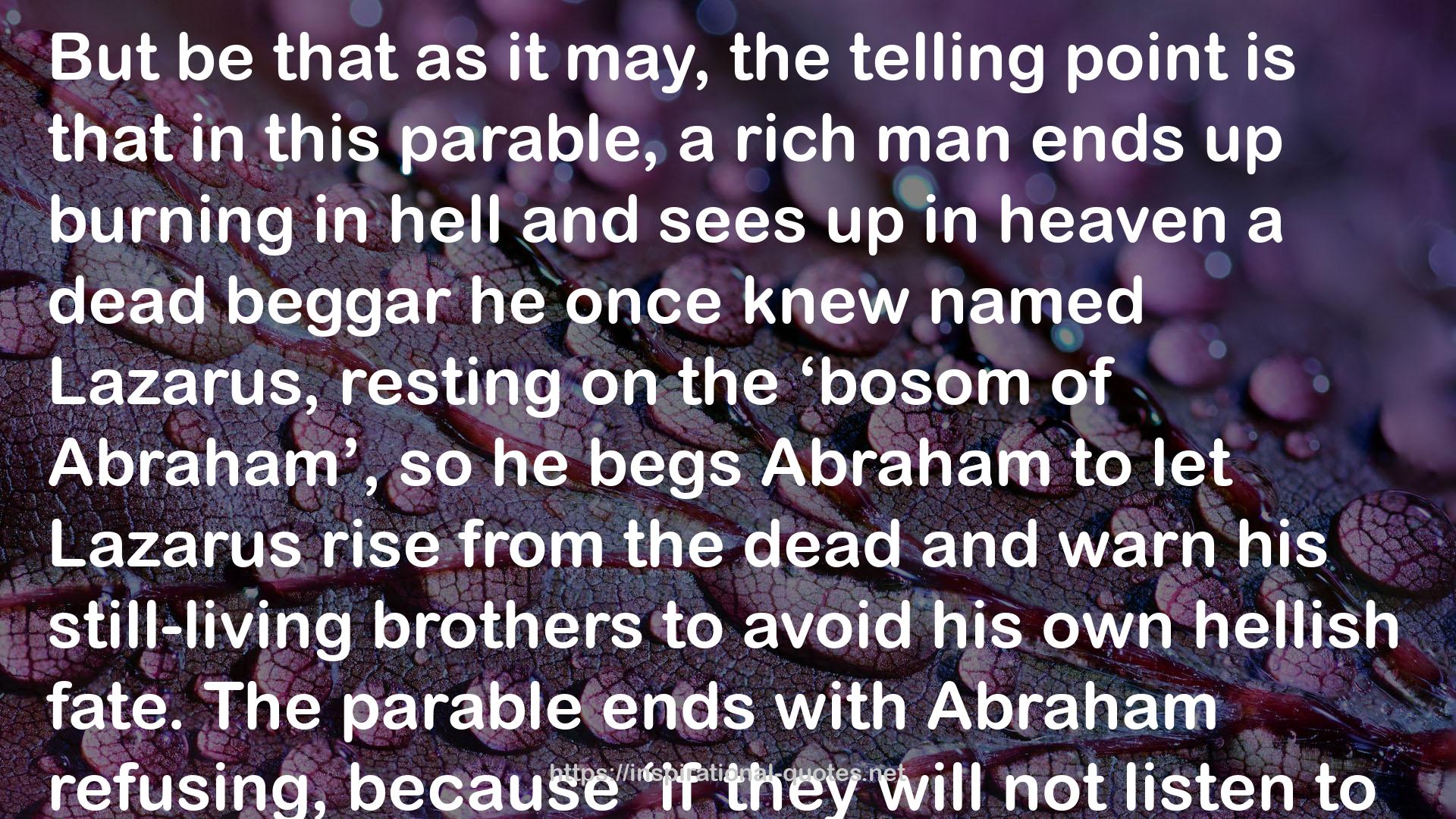" But be that as it may, the telling point is that in this parable, a rich man ends up burning in hell and sees up in heaven a dead beggar he once knew named Lazarus, resting on the ‘bosom of Abraham’, so he begs Abraham to let Lazarus rise from the dead and warn his still-living brothers to avoid his own hellish fate. The parable ends with Abraham refusing, because ‘if they will not listen to Moses and the prophets, neither will they be persuaded if someone rises from the dead’ (Lk. 16.31). Key to this parable is that this fictional Lazarus does not rise from the dead, and that even if he did, it would convince no one, and therefore it won’t be done. This is thus another expanded exercise in making the repeated point that Jesus will not perform signs because they will not persuade anyone (as I surveyed earlier). Notice what happens in John: he reverses the message of Luke’s parable, by having Jesus actually raise this Lazarus from the dead, which actually convinces many people to turn and be saved, the very thing Luke’s Jesus said wouldn’t work. In fact, just as the rejected request in Luke’s parable imagined Lazarus going to people and convincing them, John’s Lazarus is then cited as a witness to the crucifixion, empty tomb and resurrection of Jesus, and is so cited specifically to convince people—again what Luke’s Jesus said wouldn’t work. "
― Richard C. Carrier , On the Historicity of Jesus: Why We Might Have Reason for Doubt
